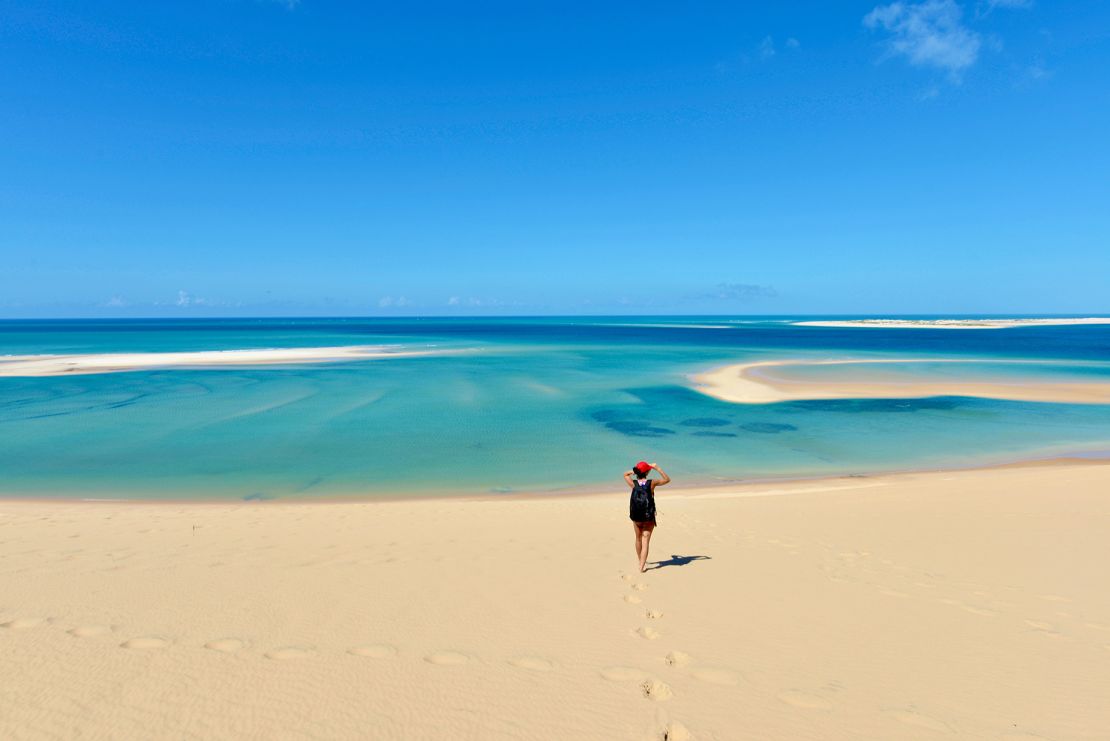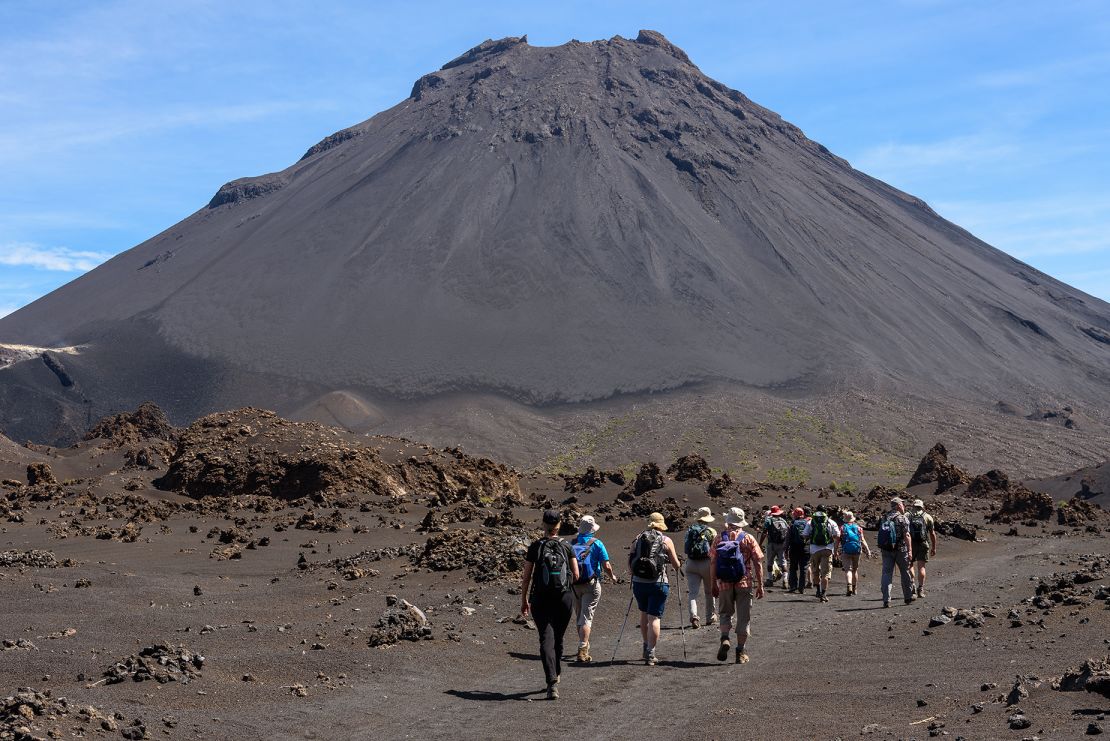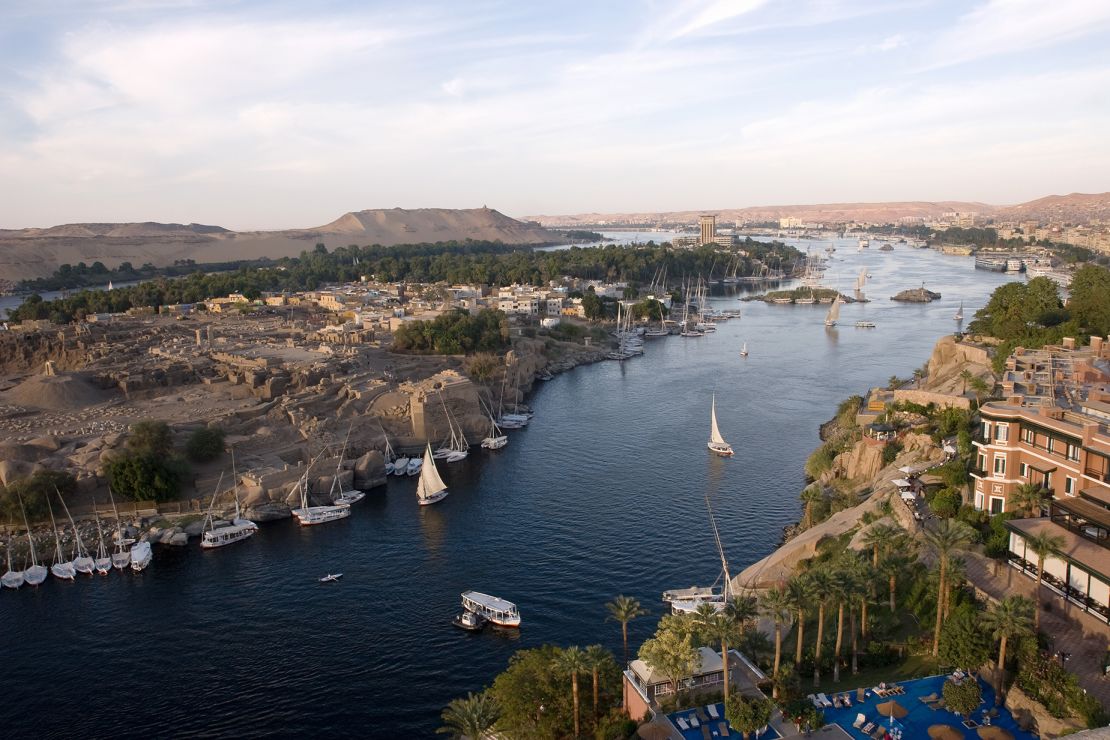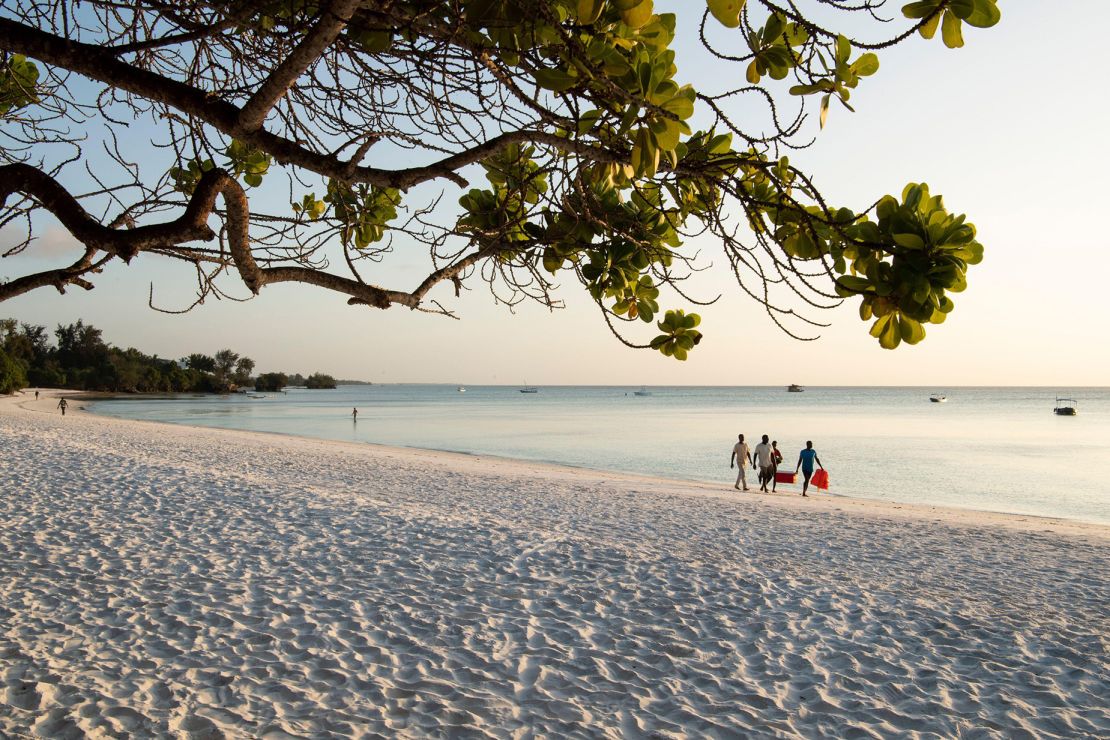Beautiful African paradise islands that most tourists don’t know about
CNN carries an article about beautiful African paradise islands, Caliber.Az reprints the article.
A couple of African paradise islands have been on the radar of avid world travelers for some time.
Mauritius and the Seychelles are bucket list honeymoon locations, while the Canary Islands and Tunisia’s Djerba island rank as two of the most popular holiday destinations in all of Africa.
For those who want to avoid the crowds and discover someplace new, Africa also boasts some “almost famous” islands with awesome beaches, unique wildlife, and amazing outdoor adventures on both land and sea.
Here are eight of those places:
Nosy Be (Madagascar)
Nosy Be means “Big Island” in the Malagasy language. Which is more than a little ironic when you realize it’s tiny compared to neighboring Madagascar. But the paradise island does loom large when it comes to nature.
Lokobe Natural Reserve on the island’s south side preserves an ancient rainforest and various creatures that call it home, from the turquoise-colored panther chameleon and the Madagascar owl to several lemur species including endangered black lemurs and tiny mouse lemurs. Best way to explore the park is via pirogue canoe with a local guide.
The island’s warm tropical offshore waters offer Nosy Tanikely Marine Park and 20 other dive sites, plus a chance to swim with the whale sharks that migrate through the area in October and November.
Nearly all of Nosy Be’s hotels lie along white-sand strands on the west coast, including the family friendly Andilana Beach Resort and the rustically romantic Le Grand Bleu.
Getting there: The easiest way to reach Nosy Be from outside the region is Ethiopian Airways and its four-hour, nonstop flights from Addis Ababa.
Bazaruto (Mozambique)

The largest island in a five-island tropical archipelago of the same name along Mozambique’s Indian Ocean coast, the Ilha do Bazaruto is renowned for towering sand dunes, wild beaches and upscale resorts.
Shellfish Bay on the island’s windward side shelters one of East Africa’s most spectacular beaches, a crescent of white sand framed by 100-meter dunes.
As the cornerstone of Bazaruto Archipelago National Park, the island is also home to a wide variety of indigenous wildlife, from the crocodiles and wading birds that frequent freshwater lagoons on the leeward side of the coastal dunes, to five types of sea turtle, East Africa’s largest dugong population, and rare marine species like the guitarfish and rhino ray.
Bazaruto Island Resort, the island’s top digs, can arrange scuba diving and snorkeling, sailing on traditional dhow boats, guided 4x4 wildlife safaris, sandboarding on the dunes and other outdoor activities.
Getting there: A 90-minute nonstop flight from Johannesburg to Vilanculos on Airlink and then a one-hour boat transfer.
Lamu (Kenya)
Swahili culture survives and thrives on this island off Kenya’s northeast coast. The waterfront crowded with triangular-sailed dhows, Lamu Town resonates with the sound of craftsmen building new wooden boats and the call of the muezzin from ancient mosques.
A small but interesting museum and ancient fort are the town’s main attractions, but visitors can also arrange a half-hour boat ride to explore the ruins of 15th-century Takwa on nearby Manda Island. Lamu’s best beaches are on the island’s windward side, around a 30–40-minute walk via Shela village.
Stay at Lamu House, a chic little boutique hotel in town, or way out on the beach at Kizingo Eco Lodge.
Getting there: A three-hour bus ride from Malindi to Mokowe, and then a short water taxi to Lamu Town; or a 80-minute flight from Nairobi on JamboJet.
Fogo (Cape Verde)

Black sand beaches, twisted lava landscapes, and a notorious active volcano set this Cabo Verde island apart from its neighbors off the coast of West Africa.
Rising more than 9,000 feet (2,800 meters) above the coast, Pico do Fogo has blown its top 30 times since the 15th century when Portuguese explorers became the first humans to set foot on the island. A local guide is recommended for the 4.5-mile (7.8 km) trek to the summit.
Nominated for UNESCO World Heritage status, São Filipe with its cobblestone streets, brightly painted sobrado homes is one of Cape Verde’s oldest and best-preserved Portuguese colonial towns.
One of the mansions provides a nostalgic venue for the Hotel Savana with its sea views and swimming pool. Or crash at Casa Marisa in the volcanic caldera.
Getting there: A half-hour flight from Praia on Cabo Verde Airlines.
Réunion (French Overseas Territory)
A French possession since 1638, Réunion lies in the southern Indian Ocean around 420 miles (680 km) east of Madagascar and not far from Mauritius. With coconut palms, sugarcane fields and a Creole dialect, the island feels more like the French Caribbean than Africa.
The island is ringed by more than 20 miles (30 kilometers) of beaches, ranging from popular urban strands like white sand Plage de L’Hermitage to the more secluded, black sand Plage de l’Etang Sale.
The rugged volcanic highlands can be explored on numerous hiking trails, while down at the coast, Saint-Denis and other towns offer excellent French cuisine, live Creole music, and stylish oceanfront hotels like the Blue Margouillat.
Getting there: Four airlines offer nonstop service (11-12 hours) from Paris Orly to Réunion. There are also flights from Johannesburg, Mauritius and Antananarivo.
Elephantine (Egypt)

Rising in the middle of the River Nile at Aswan, this elongated island is said to derive its name from being shaped like an elephant’s tusk. Despite the appearance of modern hotels and restaurants in recent decades, much of Elephantine still looks, acts and feels like rural Egypt.
Ruined temples dating to around 3,200 B.C.E. — and an ancient stone nilometer for measuring the river’s water level — reflect the island’s importance during pharaonic times. Located inside a traditional Nubian-style home, the Animalia Museum offers insights on Elephantine’s human and natural history.
Yet the coolest thing about Elephantine is lounging in a waterfront café, on the balcony of a guest house, or your room at the island’s Mövenpick Aswan Resort, watching wooden sailing feluccas flit up and down the Nile and gazing at Aswan’s exotic skyline on the other side of the river.
Getting there: Felucca or ferry from the Aswan waterfront after a domestic flight on Egypt Air.
Bissagos Islands (Guinea-Bissau)
The epitome of under-the-radar, the Bissagos (Bijagós) Archipelago has been lauded in Vogue and features on the itinerary of a few small cruise companies that ply the West African coast, yet the 88-island group still largely undiscovered by the globetrotting masses.
Pristine mangroves, mudflats, savannah grasslands, tropical forest and surprisingly diverse animal life (that includes rare ocean-going hippos) earned the archipelago UNESCO Biosphere Reserve status in 1995. Bissagos should be on the bucket list of every serious birder.
Overnight accommodation is sparse and largely limited to the Ilha de Bubaque, where modest abodes like Cajou Lodge and EcoLodge Ponta Anchaca cater to travelers making landfall on the remote outer edge of Africa.
Getting there: If you’re not on a cruise ship, the only way is via water from Bissau city, a journey that can take anywhere from 90 minutes to six hours depending on the boat.
Pemba (Tanzania)

It doesn’t exude the exoticism of nearby Zanzibar, but the large Tanzanian isle outshines its neighbor when it comes to pristine, palm-shaded beaches and out-of-this-world diving.
Pemba’s 30 plus dive sites are celebrated for its healthy coral gardens with an abundance of macro creatures, sheer underwater walls that plunge into the black, and offshore waters with large pelagic fish and migrating humpback whales in July and August.
Afro Divers and Dive 360 Pemba at Manta Resort — both of them at Pemba’s north end — are PADI certified.
Getting there: Slow, intermittent ferries from Zanzibar, Tanga and Dar es Salam, or a 25-minute puddle jumper from Zanzibar on FlightLink airlines.








